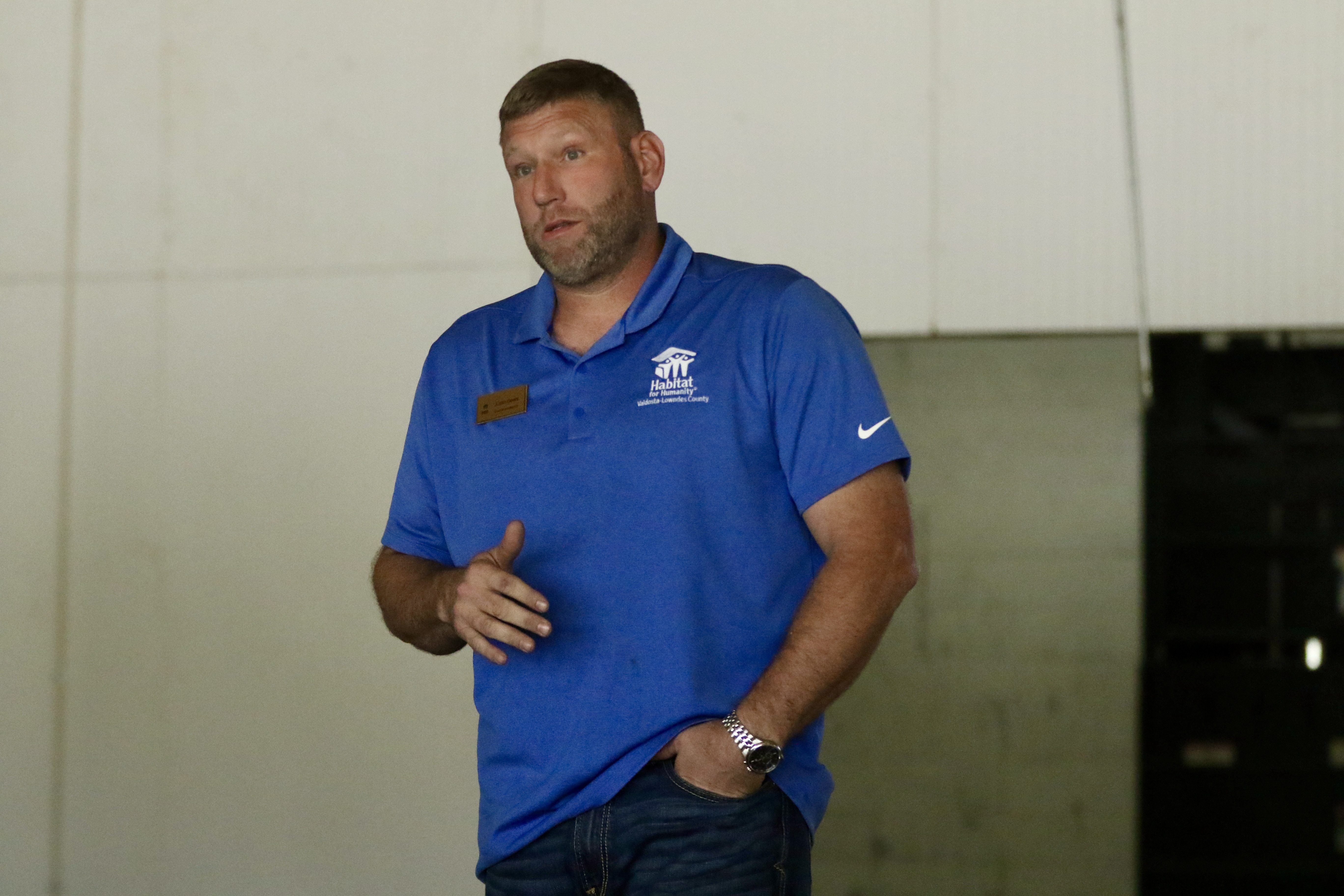Rural journalist jailed in open records battle
Published 11:47 pm Friday, July 1, 2016

- Journalist Mark Thomason was arrested in a rural north Georgia county after making an open records request. Submitted photo.
BLUE RIDGE, Ga. — Mark Thomason was arrested, handcuffed, put in the back of a police cruiser, booked, had his mugshot taken, was strip searched, made to pee in a cup in front of male witnesses, made to shower with other inmates and spent 24 hours in a jail cell.
His crime?
According to the rural north Georgia journalist, he simply made open records requests that made people in powerful positions angry.
One of the powerful people in this case happened to be the chief judge of the Appalachian Judicial Circuit, Brenda Weaver.
The state’s leading authority on the First Amendment, David E. Hudson, is calling the case “an affront to the exercise of First Amendment rights.”
Thomason was charged with identity fraud and attempt to commit identify fraud after he made a request for checks drawn on a county government bank account, he said.
Thomason said he knew that asking for an accounting of government spending could make officials uncomfortable, but he never thought he could land in jail.
“Being arrested is something I could have never imagined. I was confused. I was a little scared,” he said. “I really didn’t know what was going to happen.”
Thomason, publisher of the Fannin Focus in Blue Ridge in north Georgia’s Fannin County, was arrested last Friday and carted off to jail with his attorney, Russell Stookey.
Thomason had filed an open records request with county government for copies of checks written from the county’s general fund account and coded to Judge Weaver’s courtroom expenses. Stookey had filed a court subpoena for the financial records.
Thomason was also charged with making a false statement as part of his open records request.
Hudson, who is the general counsel for the Georgia Press Association, said, “Unless the prosecutor and the grand jury had evidence or testimony that the journalist and the lawyer intended to use the bank information to defraud some person or entity, an indictment should never have been sought or returned.”
Reasons behind the open records requests
While Thomason was jailed overnight, the tangled web that led to his arrest was more than a year in the making.
Back in early 2015 Thomason said he had gotten wind of another local judge using racial slurs in open court.
He requested audio files of the court proceedings.
A court reporter rebuffed his requests for the tapes.
Thomason then filed a lawsuit in an effort to obtain the audio tapes and the court reporter’s transcripts. In turn, the court reporter filed a defamation suit against Thomason.
The court reporter had also petitioned the court to have Thomason pay her attorney’s fees.
While the lawsuits were dismissed, and her request to have attorney’s fees paid was denied, Thomason got another tip that the court reporter’s legal expenses were paid out of public funds, viz. Judge Weaver’s court expense funds that are paid out of the Fannin County General Fund Budget.
That’s when Thomason made the open records request for the checks.
“I never requested her personal account information or personal checks. This was a public account,” Thomason said.
Why the judge claimed identify fraud
While there may have been some missteps in making the open records request, Thomason said there was nothing nefarious in the request and no attempt for financial gain or identity theft.
Hudson explained the law requires that anyone requesting bank records also notify the customer or depositor, which may not have been done in this case. But he added the statute does not contain any criminal penalty.
“What I think is a gross abuse of the criminal law process is the indictment brought against the journalist and his lawyer,” he said. “It would be surprising if the district attorney or the grand jury heard any evidence that the journalist and the lawyer sought the information covered by the subpoena in order to defraud some person or entity of anything of value.”
Why the judge claimed defamation
When he made the open records request his letter suggested checks were “cashed illegally,” resulting in Weaver’s defamation claims.
Hudson said, The open records request for checks to the Pickens County Commission chairman merely included a statement of opinion that some checks “appear to have been deposited but cashed illegally.
“This was not a statement that was made in order to obtain or avoid any official government action. It was a mere statement of opinion, and the grand jury likely had no evidence that the statement was made ‘knowingly and willfully’ that it was false. If the judge in Fannin County believed that false statements of fact were being made about her, a lawful remedy was to sue for defamation.”
Hudson said of Weaver’s actions, “Seeking to have the district attorney present the journalist’s actions to a grand jury for indictment appears both heavy handed and wrong.”
Bond conditions
Thomason regards the conditions of his bond as egregious as the arrest itself.
According the publisher, he had to sign a statement waiving his First Amendment rights. He said the bond stipulates that he and no member of his staff can be within 200 yards of a list of potential witnesses all of whom work at the county offices and courthouse, effectively meaning his publication cannot cover county government, that he must submit to regular drug testing and that his home, car and office can be searched at anytime without a warrant.
He said Judge Weaver is the complainant in the case, sought the warrant for his arrest, and his bond is being administered and enforced though her office. The drug testing must be done through a program under her oversight.
What’s next for Thomason?
Thomason said his attorney will be filing motions for relief in court and that he would hope for a dismissal.
He said Georgia First Amendment Foundation Director Hollie Manheimer has offered the foundation’s support. Manheimer said in a prepared statement, “To the extent these criminal charges stem from the use of the open records act undermines the entire purpose of the law. The open records act is the vehicle by which citizens access governmental information. Upon receipt of a public records request, a public agency is merely tasked with informing the requestor if the information sought is available and when it can be reviewed. The public agency is NOT tasked with editorializing as to how or why the request is written, even if it is a poorly written request. Retaliation for use of the open records act will inhibit every citizen from using it, and reel us back into the dark ages.”
The Society of Professional Journalists in Atlanta has also reached out to Thomason offering support that has already included a call for an investigation by state Attorney General Sam Olens.
The publisher said late Friday he has been in contact with the Office of the Attorney General but it has not officially launched an investigation, but is gathering information about the case.
District Attorney Alison Sosebee, who signed the warrant for Thomason’s arrest, had reportedly worked for Judge Weaver and later for the judge’s husband, also a local attorney.
Judge Weaver is the chairperson of the Judicial Qualifications Commission that is charged with investigating judicial misconduct.
Attempts to contact Weaver for comment Friday were unsuccessful.
Hudson said late Friday, “One would expect that a judge who chairs the State Judicial Qualification Commission to have appreciated that it was inappropriate to use criminal law charges to try and silence a critic.”
Thomason indicated that he plans to file a First Amendment lawsuit because he believes the arrest was a clear example of government “retaliating against a citizen for exercising First Amendment rights.”





